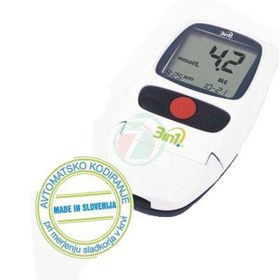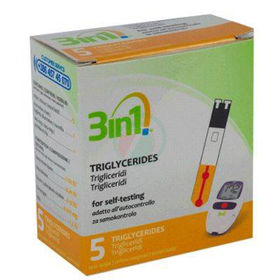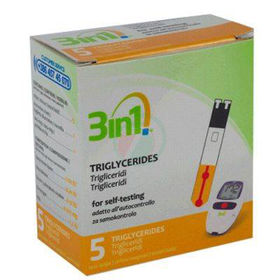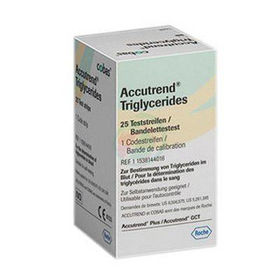Customer question:
What causes elevated triglyceride levels? Anonymous customer's question
Pharmacist's answer:
Several factors, including diet, lifestyle, genetics, and certain medical conditions, can cause elevated levels of triglycerides in the blood.
Some of the leading causes of elevated triglyceride levels include:
- Diet: Eating excessive saturated fat and simple carbohydrates, especially sugar and alcohol, can increase triglyceride levels. Fast, processed, and excessive calorie consumption can increase triglyceride levels.
- Overweight: Overweight and obesity are often associated with higher triglyceride levels.
- Physical inactivity: Lack of physical activity can increase blood triglyceride levels. Regular exercise helps regulate blood lipid levels.
- Genetics: family history plays a vital role in increased triglyceride levels. Familial hypertriglyceridemia is a genetically determined disorder that causes high levels of triglycerides.
- Diabetes: Poorly controlled diabetes, especially type 2, often causes an increase in triglycerides in the blood.
- Metabolic syndrome: metabolic syndrome is a cluster of risk factors, including overweight, high blood pressure, inadequate blood sugar regulation, and an unfavorable lipid profile, that increase the risk of cardiovascular disease.< /li>
- Alcohol: Excessive consumption of alcohol, especially beer and spirits, often increases triglyceride levels.
- Certain medications: Certain medications, including corticosteroids, diuretics, retinoids, and beta-blockers, can affect triglyceride levels.
- Pregnancy: some women may develop temporarily elevated triglyceride levels during pregnancy.
To control and lower elevated triglyceride levels, it is usually recommended to maintain a healthy lifestyle, including a balanced diet, regular exercise, and limiting alcohol. Medications may also be used in some cases, especially if triglyceride levels are very high or there are other risk factors for cardiovascular disease. Consult your doctor, who will assess your circumstances and recommend appropriate treatment, is essential.
What level of triglycerides is considered elevated?
Triglyceride levels are usually measured in milligrams per deciliter (mg/dL) of blood, and what is considered an elevated level can often vary based on medical guidelines.
Here are general guidelines for triglyceride levels:
- Normal: less than 150 mg/dL
- Limited high: 150-199 mg/dL
- High: 200-499 mg/dL
- Very high: 500 mg/dL or more
It is essential to realize that these are general guidelines and that it makes sense to consider individual risk factors and medical conditions when interpreting triglyceride levels. Factors that can contribute to elevated triglycerides include obesity, physical inactivity, a high-carbohydrate diet, excessive alcohol consumption, diabetes, metabolic syndrome, and certain medications.
What are the symptoms of elevated triglyceride levels?
Elevated levels of triglycerides in the blood usually do not cause specific symptoms by themselves. However, high levels of triglycerides are often associated with some worrying health problems.
You must regularly check your triglyceride levels with blood tests as part of routine health assessments. Elevated triglycerides are a known risk factor for cardiovascular disease.
It is important to note above all that the main concern with elevated triglycerides is the increased risk of cardiovascular disease, which develops silently over time without noticeable symptoms. Regular checkups include monitoring your lipid profile (including triglycerides and cholesterol measurements) and addressing any underlying risk factors or health problems.
Suppose you may be concerned about your triglyceride levels or at risk for high triglycerides. In that case, your doctor can guide you on managing and reducing your risk through lifestyle changes such as a heart-healthy diet, exercise, and, if necessary, medicines.
Can elevated triglycerides be dangerous?
Yes, elevated triglycerides can be dangerous, and they are at risk for a wide range of health problems, especially if they are persistently high. High levels of triglycerides are considered a risk factor for cardiovascular disease and can contribute to various complications. Some of the potential dangers and health risks associated with elevated triglycerides include:
- cardiovascular disease
- acute pancreatitis
- metabolic syndrome
- increased risk of blood clots
- type 2 diabetes
- fatty liver
To reduce the risk associated with elevated triglycerides, it is essential to work with your doctor and manage your triglyceride levels through lifestyle changes, including a healthy diet, regular exercise, and, if necessary, medication. Regular monitoring of triglyceride levels and addressing other risk factors for cardiovascular disease is critical to maintaining a healthy heart and overall well-being.
Why do I have too low a level of triglycerides in my blood?
A variety of causes can cause low levels of triglycerides in the blood, and the causes can include genetic factors as well as other medical conditions. It is important to emphasize that low levels of triglycerides are usually of less significant clinical value compared to high levels of triglycerides, which are associated with the risk of cardiovascular disease.
However, the causes of low triglyceride levels must be checked with a doctor. Low triglyceride levels can sometimes be a symptom of other health problems, such as gastrointestinal or hormonal disorders.
If your low triglyceride levels are due to an underlying medical condition, your doctor will assess whether any treatment or further tests may be needed. Adjusting the diet plan and lifestyle if low triglyceride levels result from malnutrition or another nutritional disorder is essential.
How do we test the level of triglycerides in the blood?
The level of triglycerides in the blood is checked with a blood test called a lipid profile or lipidogram. This test measures various blood fats, including triglycerides, cholesterol (total cholesterol, low-density lipoprotein (LDL) cholesterol, high-density lipoprotein (HDL)), and other lipids. A lipid profile allows you to assess your risk of cardiovascular disease and monitor blood lipid levels.
Interesting reading: Operation for the blocked jugular vein
Interesting reading: Triglycerides in blood













